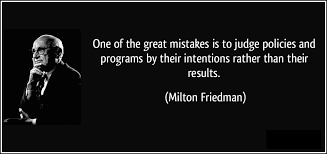Unintended consequences of tobacco tax
 Preventing and reducing cigarette, tobacco and nicotine use are reasonable goals given the dangers and societal costs involved. One method commonly advocated is increasing taxes on tobacco. In a Healthline article highlighting a tobacco tax increase in California, a couple of high profile quotes may be well meaning but would seem to be more than a little optimistic:
Preventing and reducing cigarette, tobacco and nicotine use are reasonable goals given the dangers and societal costs involved. One method commonly advocated is increasing taxes on tobacco. In a Healthline article highlighting a tobacco tax increase in California, a couple of high profile quotes may be well meaning but would seem to be more than a little optimistic:
“The bottom line is that significant tax increases are the single most effective way to reduce tobacco use.”
Regarding this first quote, the U.S. Surgeon General’s report on reducing tobacco use states “A hierarchy of effectiveness is difficult to construct.”
“we can very well wipe out tobacco as a public health problem in five years in California.”
Considering the history of smoking control success, this quote should put everyone on “high spin” alert, even if it is a noble ideal.
Regardless of how effective we believe taxation can be to change behavior, there are unintended consequences to tobacco taxes that are often hidden from the conversations. Here are a few:
- Taxing may lead to some reductions in consumption, but also to increased illicit trade and ways to get around the tax. Tax avoidance is similar to rad
 ar detectors. Radar improves, then detectors improve, and you create a vicious cycle that mostly benefits those that make the products (in this case, tobacco companies, government, and tax lawyers). There is nearly universal agreement that higher taxes increase illegal forms of distribution. The Federal Government’s own Alcohol and Tobacco Tax Bureau’s budget report states “Higher prices on tobacco products have historically resulted in decreased consumption and increased illicit trade.”
ar detectors. Radar improves, then detectors improve, and you create a vicious cycle that mostly benefits those that make the products (in this case, tobacco companies, government, and tax lawyers). There is nearly universal agreement that higher taxes increase illegal forms of distribution. The Federal Government’s own Alcohol and Tobacco Tax Bureau’s budget report states “Higher prices on tobacco products have historically resulted in decreased consumption and increased illicit trade.” - Because it is very difficult to maintain equality across taxes, increased taxes on one product lead to tax avoidance and to shifts to other tobacco products that for various reasons don’t have similar tax rates. Enforcement and collection of taxes becomes a significant activity that has limited positive societal benefit.
 Tobacco taxes are highly regressive taxes, harming far more harshly those in lower income levels and in disadvantaged communities. And the risk is these taxes become more regressive over time, as governments seek to maintain tax revenues across a smaller population.
Tobacco taxes are highly regressive taxes, harming far more harshly those in lower income levels and in disadvantaged communities. And the risk is these taxes become more regressive over time, as governments seek to maintain tax revenues across a smaller population.- Tobacco taxes seek to change behavior through negative reward reinforcement, but most research on reward factors suggests that the effectiveness of negative reinforcement tends to lessen over time. Positive reward reinforcement is a better long term method to change behavior and habit.
- One significant consequence, which will be discussed at more length in a future posting, is the effect taxes have on government itself.
At Sentiens, we’ve developed BotanicBoost and the Novus products to provide an alternative to tobacco and nicotine that has been clinically proven to be satisfying to smokers but is healthy. We think it’s worth a try.


